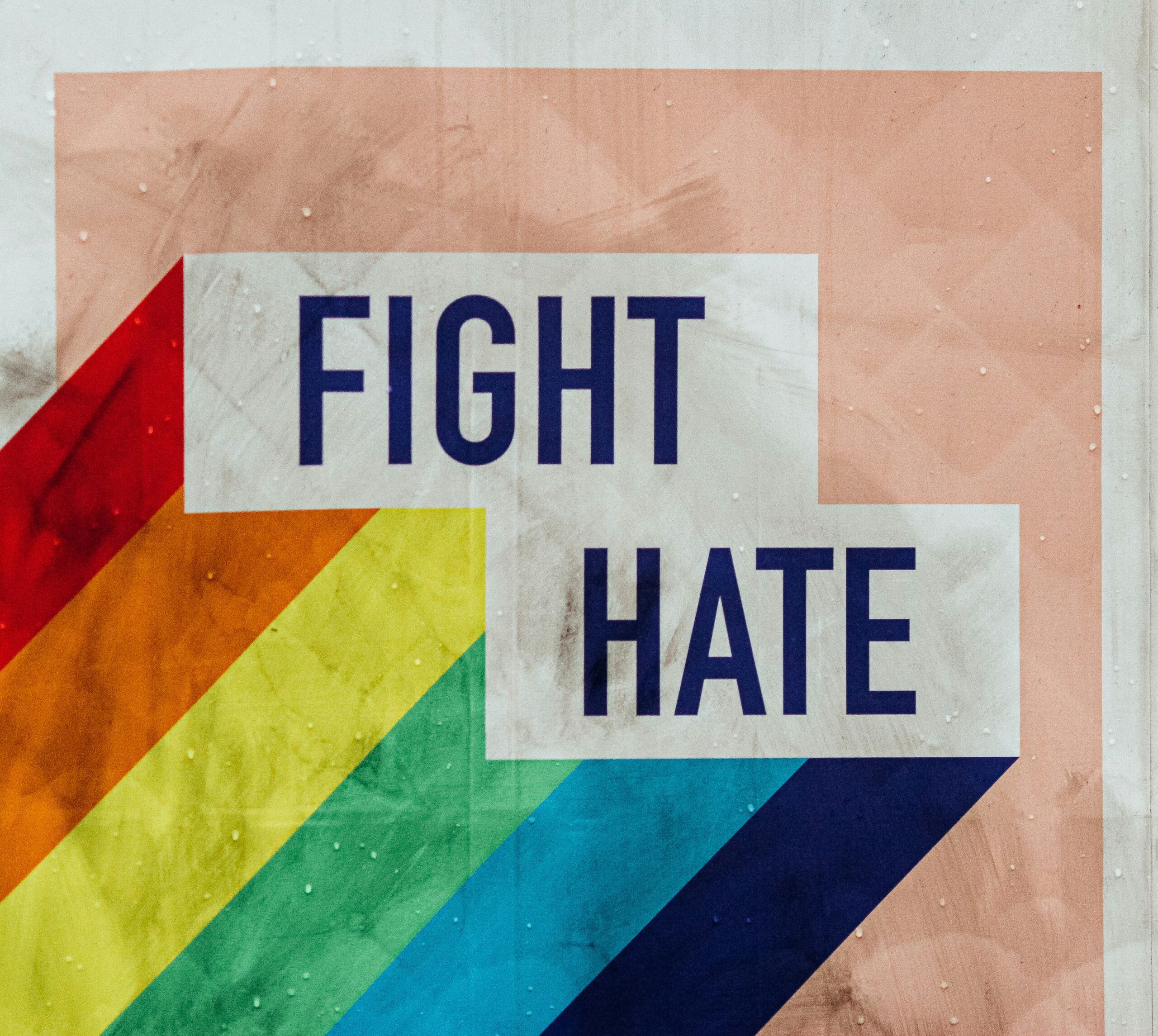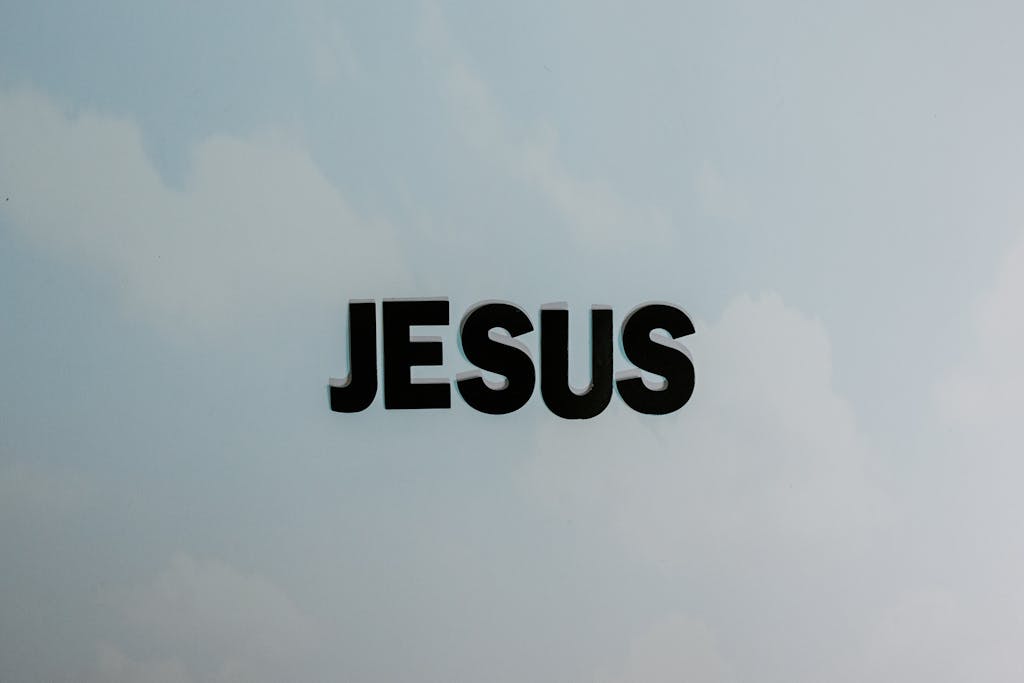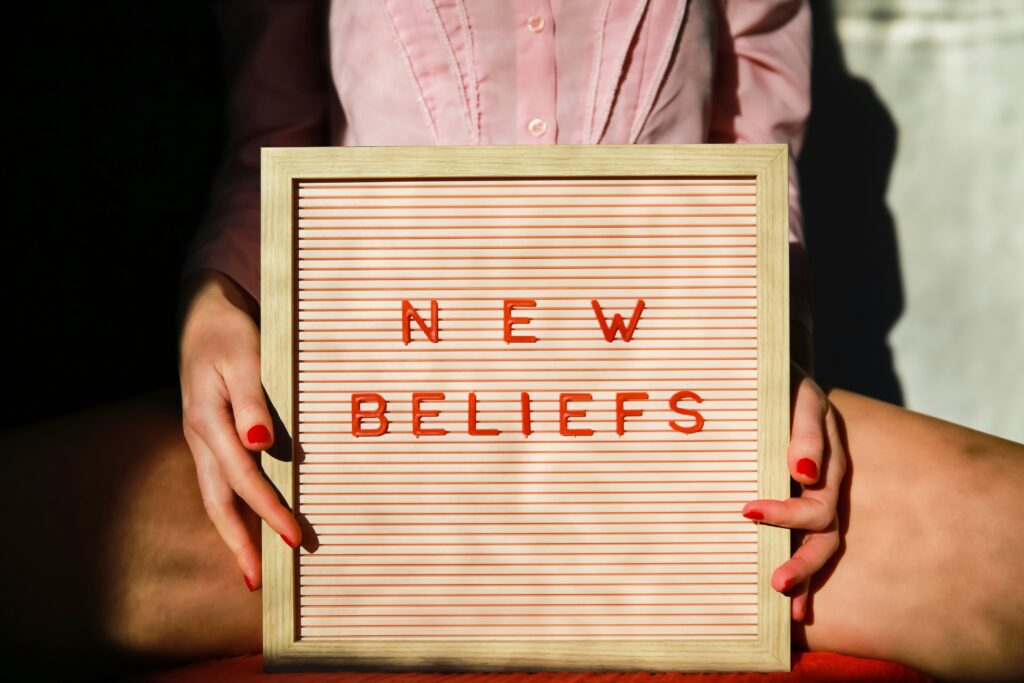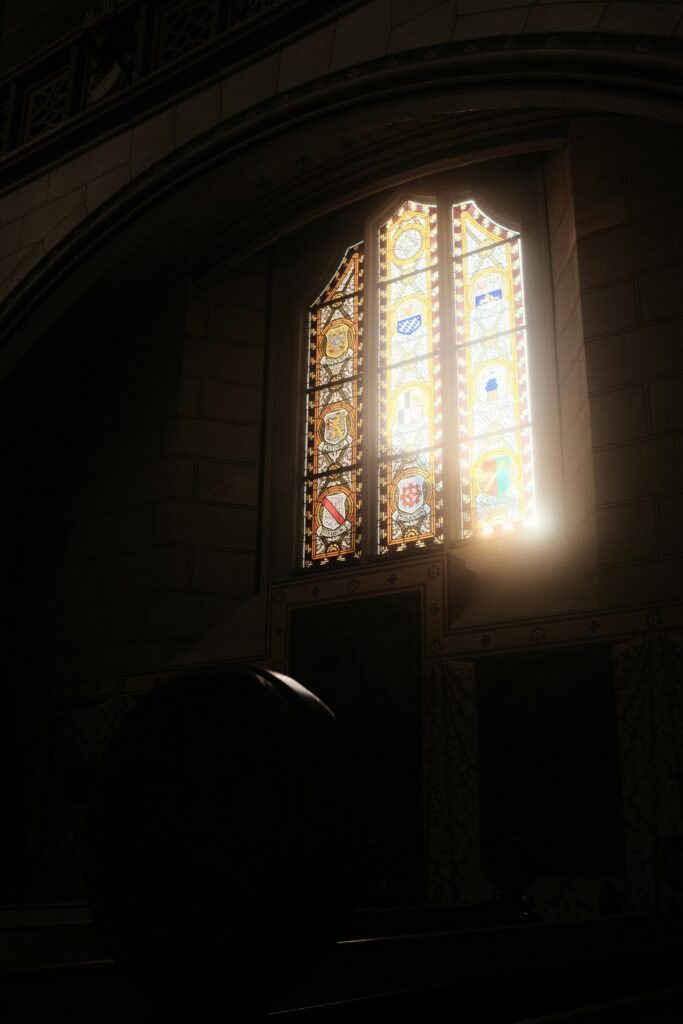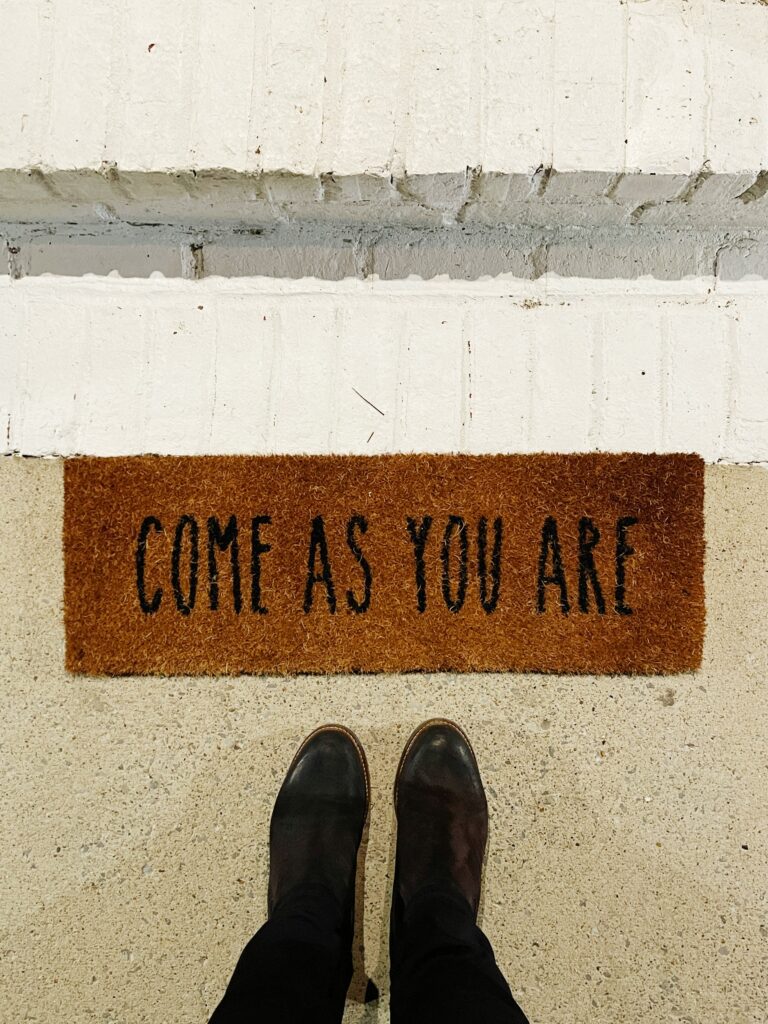Silence Isn’t Neutrality: Why Failing to Condemn Bigotry Is Complicity
The Gospel calls us to live boldly in love and justice, but too often, the Church has fallen silent when its voice was needed the most. And that silence has been nothing short of devastating!
While some may hope silence is merely neutrality, it is anything but. When some are hurling insights, hatred, or even weapons at others; when some in the world are intentionally trying to harm others because of who they are, silence permits it. It seemingly condones it, as it allows the harm, the division, the oppression to thrive unchecked.
The time has come to look inward and ask hard questions—not to shame ourselves or others, but to seek repentance and renewal so we can live out the Gospel with courage and love. This is an invitation for reflection, for growth, and for action. Together, let’s move beyond apathy and fear, building a faith rooted in radical love and inclusion.
The Historical Role of Bigotry in Church Silence
Throughout history, bigotry has played a devastating role in silencing the Church and enabling oppression. Though the specifics differ, the root is often the same: fear of the unknown, prejudice against the “other,” and loyalty to dominant systems of power.
The Church and Slavery
During the centuries of transatlantic slavery, many Christian churches not only turned a blind eye to the dehumanization of Black individuals but actively condoned it. Some pastors preached sermons defending slavery as a biblical institution, conveniently ignoring the call to love one’s neighbor. Denominations split over the issue, as factions sought to preserve their economic systems built on human bondage. Abolitionists like Frederick Douglass often criticized the Church’s hypocrisy, pointing out how scripture was twisted to justify oppression. Imagine the lives that might have been spared and the legacy of equality that could have been championed had the Church stood up as one against slavery’s evils.
Complicity in Anti-Semitism
The Holocaust provides one of the clearest historical examples of bigotry’s power. Anti-Semitic ideas had long been entrenched in European culture, including within the Church. Harmful stereotypes about Jewish people as “Christ-killers” or conspirators had been perpetuated for centuries. These beliefs laid the foundation for widespread indifference to and silence amid the plight of Jewish people as Hitler rose to power.
The Internment of Japanese Americans
After Pearl Harbor, Japanese Americans were rounded up and forced into internment camps. While political leaders justified this as a security measure, the action was rooted in discriminatory attitudes toward people from the East. Generations of anti-Asian racism contributed to fears that Japanese Americans weren’t loyal to the U.S., and many saw them as perpetual foreigners. Most churches did little to challenge this grave injustice. Their silence underscored a willingness to align with the fear-driven, bigoted policies of the time rather than advocate for the dignity of these communities.
Poverty and Neglect of the Poor
Is the neglect of the poor tied to bigotry? Yes. The societal tendency to blame poverty on personal failure rather than structural inequity is often rooted in prejudice. Poor individuals are frequently seen as less worthy or less hardworking. These harmful narratives disproportionately impact marginalized communities, including racial minorities, immigrants, and people with disabilities.
Jesus, however, flipped these assumptions. He declared, “Blessed are you who are poor, for yours is the kingdom of God” (Luke 6:20).
How have we, as Christians, lived out Jesus’ call to lift up the poor? Are we challenging stereotypes that dehumanize, or do we allow them to persist in our minds and communities?
Anti-Muslim Bias and Gaza
Since the 9/11 attacks, anti-Muslim prejudice has risen sharply. Fear and bias have fueled narratives that dehumanize Muslim communities, casting them as threats to safety. This bias not only isolates our Muslim neighbors but also influences global conflicts, such as the suffering of Palestinians in Gaza.
Today, the ongoing genocide in Palestine serves as a heartbreaking reminder of how bigotry can silence action. Are our hearts equally grieved for all who suffer, regardless of their faith, nationality, or ethnicity? What prevents us from seeing all people as made in God’s image?
Why Bigotry Thrives
Bigotry is not innate. It is learned–nurtured by the narratives we absorb. And it’s driven by the fears within us. Understanding its roots is essential if we hope to dismantle it.
Learned Prejudice
From a young age, we inherit the biases of our families, communities, and cultures. These attitudes can be overt or subtle, but their impact is powerful. Children grow up internalizing stereotypes, whether through casual comments, societal norms, or the stories they do and don’t hear. Without intentional effort, these prejudices grow into beliefs that shape how we interact with those who are different from us.
Fear of Difference
At its core, bigotry is often rooted in fear. What we don’t understand feels threatening, and that discomfort can transform into judgment. Fear whispers that difference is dangerous, encouraging us to retreat rather than engage. But Scripture calls us to something greater. Repeatedly, Jesus shows us that transformation comes through engagement, humility, and love—not isolation or fear.
The Call to Build Bridges
Building understanding isn’t easy work, but it is holy. It requires courage to step outside our comfort zones, to admit what we don’t know, and to listen deeply to others’ stories. This is the work of bridge-building, and it’s central to the Gospel.
When Jesus spoke with the Samaritan woman at the well (John 4), he modeled how to break through cultural and theological divides. Instead of seeing her as “other,” he saw her humanity. Instead of walking away, he entered into relationship. This is the work Jesus invites us into—to build bridges where divisions exist, to draw close rather than stand apart.
Theology That Leads to Action
Faith compels us toward justice. The doctrine of Imago Dei teaches that every person is made in God’s image. This understanding leaves no room for bigotry. Racism, xenophobia, classism, and all forms of prejudice contradict this fundamental truth.
Similarly, the Christian hope in a future Kingdom—a place of justice, peace, and reconciliation—inspires us to take action today. Rather than wait passively for this Kingdom, we are called to build it here and now. This means confronting the systems and attitudes that oppress, and working tirelessly to bring love and liberation into the world.
Steps Toward Change
Feeling overwhelmed by these issues? It’s natural! Good news is that change starts with small, faithful steps. Here are ways to begin:
- Educate Yourself
Seek out voices from marginalized communities through books, podcasts, or events. What is one story or perspective you can commit to learning this month? - Engage Locally
Advocate for equity in your community. Volunteer with organizations fighting poverty, supporting immigrants, or addressing systemic racism. Which local issue stirs your heart, and who can you partner with to make a difference? - Foster Dialogue
Create spaces in your church or small group to talk honestly about prejudice and privilege. What conversations has your community struggled to have? How could you help create safe spaces for those discussions? - Examine Your Own Heart
Reflect on your biases. When was the last time you caught yourself making an assumption about someone based on their race, gender, or class? How can you begin to unlearn these patterns? - Support Policy Change
Advocate for policies that promote justice and inclusion. Use your voice and vote to challenge systems of inequity. How can you use your influence to advocate for justice on a larger scale?
Examples of the Church Striving for Justice
Advocating for LGBTQ+ Care
Rachel Held Evans often served as a lifeline for LGBTQ+ Christians, affirming their place in God’s kingdom and challenging exclusionary theologies. Leaders like Matthew Vines, through efforts like The Reformation Project, and organizations like The Covenant Network continue this fight by guiding churches toward inclusion and helping to dismantle harmful interpretations of Scripture.
Fighting for Women’s Rights
Rachel Held Evans and theologians like Sarah Bessey (Jesus Feminist) have been outspoken in challenging patriarchal interpretations of Scripture. Scholars like Beth Allison Barr (The Making of Biblical Womanhood) expose how women’s subordination has been culturally constructed, not biblically mandated, inspiring women to reclaim leadership roles within the Church.
Calling for Peace in Gaza
Shane Claiborne’s relentless voice for peace reminds Christians to center love over nationalism. Alongside groups like Churches for Middle East Peace, he calls for justice for both Israelis and Palestinians, advocating for an end to violence and systemic oppression.
Loving Immigrants
Tim Keller—with whom progressive Christians often disagree on many points of theology—is a vocal advocate for immigrant care. Agreeing with Keller in this cause, progressive voices like Karen González (The God Who Sees) offer a theology of radical welcome, urging believers to see immigrants as blessings in God’s kingdom.
Fighting Global Apartheid
Globally, leaders like Desmond Tutu embody what it means for the Church to stand against injustice. His work against apartheid in South Africa remains a powerful example of how faith and justice are interwoven.
Assisting Refugees Around the World
European Christians aiding refugees fleeing war in the Middle East reflect God’s love in tangible ways. Churches organize shelters, provide basic needs, and help integrate displaced people into new communities.
Removing Barriers of Poverty
Dorothy Day’s Catholic Worker Movement challenged the Church to live among and for the poor. Her work inspires organizations like Bread for the World, which combats hunger and promotes systemic change addressing poverty.
These examples reflect the Church’s ability to challenge oppressive systems and embody radical love. Christians throughout history and today remind us of the Gospel’s capacity to transform—not just hearts, but the world itself.
A Vision for Bold Faith
Imagine a Church that stands boldly for justice. Envision a community where no one is excluded based on who they love, where they come from, or what they earn. Picture every believer mobilizing their gifts to bring hope to the world.
This isn’t a far-off dream; it’s a calling. Faith invites us into action—not out of obligation, but out of love for God and one another.
What small steps can you take today to build this kind of Church tomorrow? How will you use your voice to speak for those who’ve been silenced?
Faith is both a gift and a responsibility. The Gospel calls us not only to believe but to act boldly. Now is the time. Transformative love begins in our hearts and moves into the world through our hands.
Will we rise to the call? The choice is ours. Together, we can build a Church that reflects the beauty, justice, and radical inclusion of God’s Kingdom. Will you join in this sacred work?

